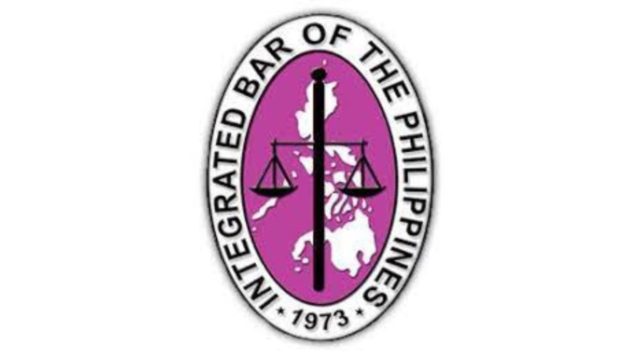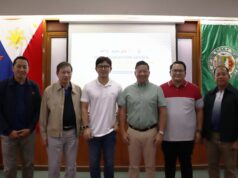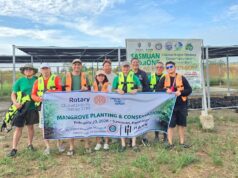Representatives from the Supreme Court of the Philippines, the Philippine Judges Association, the Department of Justice, the Department of Migrant Workers, the Commission on Human Rights, the Integrated Bar of the Philippines, the Philippine Bar Association, the Philippine Association of Law Schools (PALS), Free Legal Assistance Group (FLAG), Alternative Law Groups (ALG), National Union of People’s Lawyers (NUPL), Public Attorney’s Office (PAO), the Legal Education Board (LEB), the University of the Philippines – Office of Legal Aid, Philippine Alliance of Human Rights Advocates, law firms, the American Bar Association – Rule of Law Initiative (ABA-ROLI), European Union GoJust II Programme (GOJUST), and The Asia Foundation Programme (TAF) participated in the 2022 National Legal Aid Summit on November 27 to 30, 2022 at L’Fisher Hotel in Bacolod City, Negros Occidental.
The Summit, titled Reimagining the Art of Legal Empowerment: National Summit on Access to Justice through Cultivating Approaches on Legal Aid, was a historic gathering among alternative law groups and legal aid organizations, serving as a platform for discussion on expanding access to justice through collaboration amongst different legal aid providers and stakeholders of justice. The Summit reflects the Supreme Court’s goal to comprehensively assess all legal aid programs countrywide as part of “Outcome Area 3: Access” of its Strategic Plan for Judicial Innovations 2022-2027, the framework for the Judiciary’s goals and initiatives for the ensuing five years. Participants in the event were able to engage in meaningful discourse with the Supreme Court on possible policy changes to hasten legal aid service and promote pro bono lawyering among the members of the bar. The Summit was made possible by the Supreme Court of the Philippines, in partnership with the Integrated Bar of the Philippines, the Philippine Association of Law Schools, the Free Legal Assistance Group (FLAG), and Alternative Law Groups (ALG).
Speaking to a group of more than 200 attendees, Supreme Court Chief Justice Alexander Gahon Gesmundo underscored the significance of legal aid, stating that the nobility of the legal profession springs from its purpose of securing peace and order in society by upholding the rule of law. Thus, because of its role in the proper dispensation of justice, it exists for society and the public in general. He shared that the Court has taken steps to rebuild the practice of law by implementing reforms in legal education, envisioning that through greater participation in legal aid programs, law students will develop a strong commitment to public service.
In reiteration, Supreme Court Associate Justice Marvic Mario Victor F. Leonen stressed making the law relevant to provide more than just the rule of law but the rule of justice. He expressed optimism about the possibility of redefining the law as no longer for the powerful but rather a tool to truly liberate our people and cause major discomfort for those who stand for greed and are corrupt. In his keynote address titled The Concept of Access to Justice: Spectrum of Legal Assistance and a Possible Roadmap, Senior Associate Justice Leonen presented 10 points for consideration in the area of legal aid. These are as follows:
Legal aid shall be mandatory only for law firms with more than 20 lawyers and with a threshold income.
Legal aid or access to justice should be done through unified efforts and referrals of various organizations with no group monopolizing the rest for access to justice.
There should be common goals such as addressing corruption and analyzing analogous cases. He emphasized the inclusion of the protection of whistleblowers in access to justice.
Clinical legal education must accommodate those who would like to do actual critical research and policy advocacy.
Legal education should evolve to include competencies in developing skills to practice and advocate as well as critical legal thinking to make the law more apt in the context of our society. He also proposed adding Shari’ah and indigenous laws to the curriculum as well as alternative modes of dispute settlement to be made part of remedial law.
Scientific and empirical studies on the impact of laws and procedures in providing justice.
Scientific and empirical studies on the demographics of the legal profession: its current preferences, conditions of those preferences, and the impact of policy reform geared to tilt those preferences in favor of recovering the nobility of the legal profession.
Encouraging the proper development of sensitivity to more public interest cases, that carries with it the skills to communicate and empower the marginalized and oppressed.
Rethinking and analyzing outdated doctrines that have contributed to impoverishment, inequality, marginalization, and oppression.
Conducting an annual symposium on progresses towards more and better access to justice in all dimensions.
In the words of Supreme Court Associate Justice Alfredo Benjamin S. Caguioa, legal aid must be continuous and sustainable. Given the length of time it takes to settle legal issues, legal help must be constant and unremitting. He imparted to the body the Supreme Court’s attempts to institutionalize legal service but that the Court realized the difficulties of its implementation. For instance, if newly minted lawyers are still getting used to life in the legal profession, the primary goal of providing legal assistance may not be met. As a result, in order to properly meet this need, new lawyers must quickly acquire the necessary abilities. The ability to properly meet this need must thus be quickly acquired by new lawyers, and be maintained by established ones especially those in law firms. In order to augment the IBP’s legal aid programs, which are paid for by the Court, the Court now only has the Law Student Practice Rule. Due to these factors, legal assistance must be incentivized rather than mandated. In a meeting with the IBP that was attended by both Chief Justice Alexander G. Gesmundo and Justice Caguioa, the IBP formally submitted the proposed Unified Legal Aid Service (ULAS) Rules, which the Court is presently discussing in accordance with their long-term plans as to access to justice.
IBP National President Burt M. Estrada described all innovations and strategies the IBP has so far used to address the difficulties the IBP has faced with its legal aid program, particularly in response to and in light of the Covid-19 outbreak and its continuing repercussions. Priority was made on effectively transforming the organization into an online-ready and technology-proficient one, similar to how the Supreme Court had done because of the New Normal, from strengthening internal housekeeping procedures to focusing on capacitating the chapters. Much emphasis was also given to securing external partnerships to augment IBP legal aid programs for underserved sectors. In the same vein, the IBP has been a staunch advocate and ally of the Judiciary in promoting pro bono work from our members. Despite all of these, it is still not enough.
Sharing data on the decreasing and disproportionate number of actual and continually active IBP legal aid volunteers, President Estrada underscored the fact that it takes a village – dedicated IBP employees, volunteer legal aid lawyers, proper connectivity, equipment, and all available resources coming into play to sustain and ensure the success of the IBP’s legal aid services and that with more volunteers and funding, so much more could be attained. Atty. Estrada expressed that to inspire more lawyers to do pro bono work, only a sense of duty and not charity can move more lawyers to do this important role for the community.





